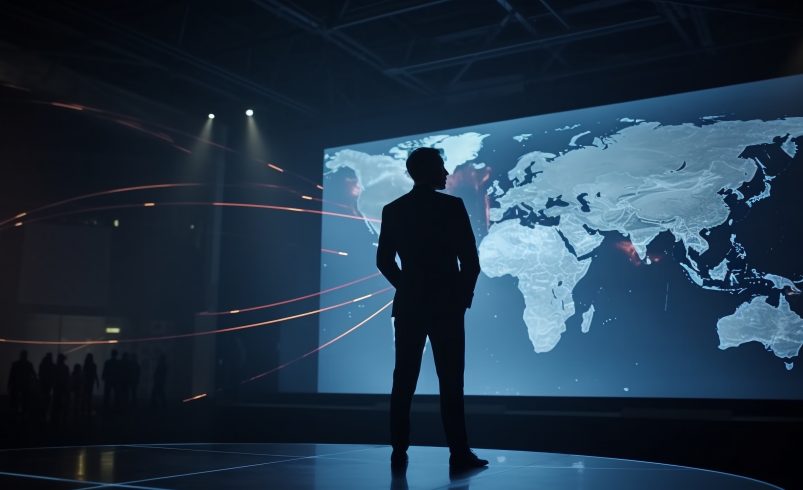In today’s rapidly changing world, understanding geopolitics is more crucial than ever. At Epic News Journal, we delve into the strategies, alliances, and power moves that shape international relations, showing how national interests, economic policies, and military influence drive global decision-making.
Every action on the world stage from emerging alliances to strategic rivalries has far-reaching consequences for peace, security, and prosperity. Leaders and policymakers navigate these dynamics carefully, and for businesses and citizens alike, understanding these global shifts is essential to staying informed and prepared for the future.
Understanding Modern Geopolitics
Geopolitics studies how geography, economics, and demographics shape political power. Today, it includes cyber influence, global trade, and energy security. Understanding historical rivalries, emerging challenges, and shifting alliances helps nations anticipate moves, form coalitions, and protect their interests in a connected world.
The Art of Strategic Alliances
Strategic alliances are central to geopolitics, allowing nations to amplify their power through partnerships. Alliances are not always permanent—they are built on mutual interests and can shift as circumstances change.
Why alliances matter:
- They create collective security, deterring potential threats.
- They open access to resources, markets, and technological expertise.
- They provide political leverage in international negotiations.
Key steps nations take in forming alliances:
- Assessing mutual benefits and shared threats.
- Negotiating terms to balance power dynamics.
- Establishing trust mechanisms, often through joint military exercises or trade agreements.
- Continuously reviewing the alliance as global circumstances evolve.
Power Moves in International Relations
Power moves refer to deliberate actions that alter global dynamics in favor of a nation’s strategic objectives. These can include military demonstrations, economic sanctions, diplomatic maneuvers, or leadership in multilateral organizations.
Common power moves include:
- Positioning military assets in strategic regions.
- Influencing international institutions to shape global rules.
- Engaging in economic diplomacy to secure trade advantages.
- Launching cultural or digital campaigns to shape perceptions abroad.
These moves are often subtle yet impactful. A well-timed diplomatic visit or a policy announcement can send strong signals to allies and adversaries alike, reshaping negotiations without direct confrontation.
The Role of Emerging Economies
Emerging economies are no longer passive participants in global geopolitics. Countries in Asia, Africa, and Latin America are increasingly influencing world affairs through trade, investment, and technological innovation.
Ways emerging powers assert influence:
- Investing in regional infrastructure projects to strengthen trade networks.
- Establishing financial institutions to reduce dependency on traditional global banks.
- Building military capabilities that allow them to participate in global security operations.
- Promoting soft power through culture, media, and education exchanges.
This shift challenges traditional power hierarchies and encourages a more multipolar world where influence is widely distributed.
Energy, Resources, and Geopolitical Strategy
Energy and natural resources are pivotal in shaping alliances and rivalries. Access to oil, gas, rare earth minerals, and water often drives international negotiations and conflicts.
Resource-driven geopolitics includes:
- Securing energy supply chains to ensure national stability.
- Leveraging resource exports as a tool for diplomatic influence.
- Developing renewable energy strategies to reduce dependency on imports.
- Collaborating on transnational projects such as pipelines or mineral extraction agreements.
Countries that manage their resource strategy effectively can secure both economic growth and global influence.
Cyber Power and Digital Diplomacy
In the twenty-first century, cyber power has become as important as traditional military strength. Nations leverage digital tools to influence foreign populations, conduct espionage, and protect critical infrastructure.
Key aspects of cyber geopolitics:
- Protecting national networks from cyber-attacks.
- Conducting cyber diplomacy to foster trust among allies.
- Using social media and digital platforms to influence global narratives.
- Collaborating internationally to establish cyber norms and standards.
The digital realm allows smaller nations to exert disproportionate influence and enables powerful states to extend reach without physical presence.
Geopolitical Hotspots and Global Tensions
Certain regions consistently dominate geopolitical discourse due to their strategic, economic, or military significance. Understanding these hotspots is crucial for interpreting global moves.
Examples of geopolitical flashpoints:
- Areas with contested borders or ongoing conflicts.
- Regions rich in natural resources critical to global supply chains.
- Locations serving as key maritime or trade chokepoints.
- Nations with emerging military and technological capabilities.
These hotspots are often arenas where alliances are tested and strategic moves have immediate global consequences.
Economic Diplomacy as a Tool of Influence
Economics and politics are inseparable in geopolitics. Countries use trade agreements, financial aid, and sanctions as instruments of influence.
Economic diplomacy involves:
- Negotiating bilateral and multilateral trade deals.
- Providing development aid to strengthen alliances.
- Using sanctions to pressure nations into compliance.
- Supporting global institutions that reflect national interests.
Through these mechanisms, nations exert influence subtly, shaping international norms and behaviors without resorting to conflict.
Steps Nations Take to Secure Global Influence
Influence is never static; it requires constant strategy and execution. Nations follow structured approaches to maintain and expand their global presence.
Stepwise approach to securing influence:
- Identifying core national interests and vulnerabilities.
- Establishing alliances with strategically aligned nations.
- Leveraging economic, cultural, and technological assets.
- Engaging in proactive diplomacy to anticipate adversaries’ moves.
- Monitoring global trends to adapt strategies in real-time.
This combination of planning and execution enables countries to navigate a world where uncertainty is the only constant.
Soft Power and Cultural Diplomacy
Not all influence comes from military or economic strength. Cultural diplomacy allows nations to project values and ideas globally, shaping perceptions and building goodwill.
Soft power strategies:
- Promoting national culture through art, music, and education.
- Hosting international events that attract global attention.
- Supporting media initiatives that tell the national story positively.
- Creating exchange programs to foster global understanding.
Soft power complements hard power by creating influence that is respected and willingly accepted by others.
Future Trends in Global Alliances
As the world becomes more interconnected, alliances are evolving. Traditional military pacts coexist with flexible coalitions focused on climate, technology, and health security.
Emerging alliance trends include:
- Issue-based coalitions rather than permanent blocs.
- Cross-regional partnerships to tackle global challenges.
- Technology-driven collaboration in space, AI, and cybersecurity.
- Public-private partnerships to extend influence beyond state actors.
These developments suggest that geopolitics will become increasingly fluid, with influence exercised in diverse and innovative ways.
Frequently Asked Questions
What is geopolitics in simple terms?
Geopolitics is the study of how geography, economics, and political strategy influence global power relations.
How do alliances impact global stability?
Alliances create collective security, facilitate trade, and allow countries to share resources and intelligence, enhancing stability.
What role do emerging economies play in modern geopolitics?
Emerging economies influence global trade, security, and technology, shifting the world toward a multipolar power structure.
Why is cyber diplomacy important today?
Cyber diplomacy protects critical infrastructure, prevents conflicts, and fosters international cooperation in the digital age.
How do nations use soft power effectively?
Soft power leverages culture, education, and media to shape global perceptions, build goodwill, and strengthen influence.
Conclusion
Geopolitics extends beyond borders and armies, involving strategy, alliances, economics, technology, and culture. At Epic News Journal, we highlight the importance of understanding these power moves to interpret global events and anticipate trends. By examining alliances, economic diplomacy, cyber influence, and soft power, readers gain insight into how nations navigate challenges and assert influence in a dynamic, interconnected world.












